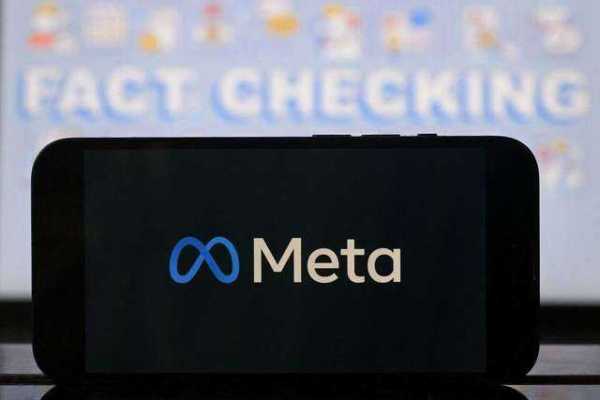
Meta has announced the removal of independent fact-checkers from Facebook and Instagram, opting instead for a user-driven approach known as "community notes".
This decision, championed by CEO Mark Zuckerberg as a return to free expression, has raised concerns among industry experts about the potential increase in misinformation.
"Community-driven moderation opens the door to group-based disinformation campaigns, often funded by special interest actors," Sohail Dahdal, Head of the Department of Media Communication at the American University of Sharjah, told . "These campaigns could manipulate the process to spread targeted, more dangerous misinformation tailored to specific agendas," he added.
The move comes as Zuckerberg and other tech executives seek to improve relations with U.S. President-elect Donald Trump before he takes office later this month. This political backdrop adds another layer of complexity to the implications of Meta's decision.
Dahdal shared his initial thoughts on this shift: "In principle, I am not opposed to community moderation. However, this decision seems to be heavily influenced by the growing political sway of figures like Trump and Elon Musk,” he said. To Dahdal this raises a concern of social media companies capitulating to political pressure — particularly when that pressure aligns with powerful corporate interests — results in multiple layers of agenda-setting.
Dahdal emphasised the fundamental responsibility of social media companies to ensure the credibility of information on their platforms. He stated, "Government intervention is essential. Legislation like those adopted in Europe, which enforce user protection and platform accountability, serve as critical examples.” Notably, Meta’s decision to restrict this new moderation model to the U.S. highlights how strong policies can safeguard users’ interests.
As for the potential erosion of public trust in media and journalism, Dahdal warned, "This shift could significantly undermine public confidence and make it increasingly difficult for users to discern truth from fiction." He underscored the importance of media literacy in helping users navigate this new landscape: "Education in media literacy is essential for fostering informed and discerning media consumers."
Emma Brain, a media professional and coach, echoed these concerns. "Although third-party independent fact-checkers might be biased, relying solely on community notes raises questions about credibility," she said. "Everyone has a responsibility to verify the information they share, especially given the legal ramifications of sharing false information here in the UAE."
From a marketing perspective, Yahya Zakaria Nayel, Marketing Manager at Edraak Media, expressed surprise at Meta's decision, noting the company's previous investments in fact-checking systems. "I'm concerned that these changes will directly impact the credibility of content on Meta’s platforms," he remarked. "We in the Middle East should be ready for when these changes apply here."
Nayel emphasised the need for brands to maintain credibility in light of these changes. "This could lead to massive waves of misinformation and false narratives, which might affect the transparency and authenticity of brand communication. We should educate our audiences and assign teams ready to review and respond promptly to misinformation."